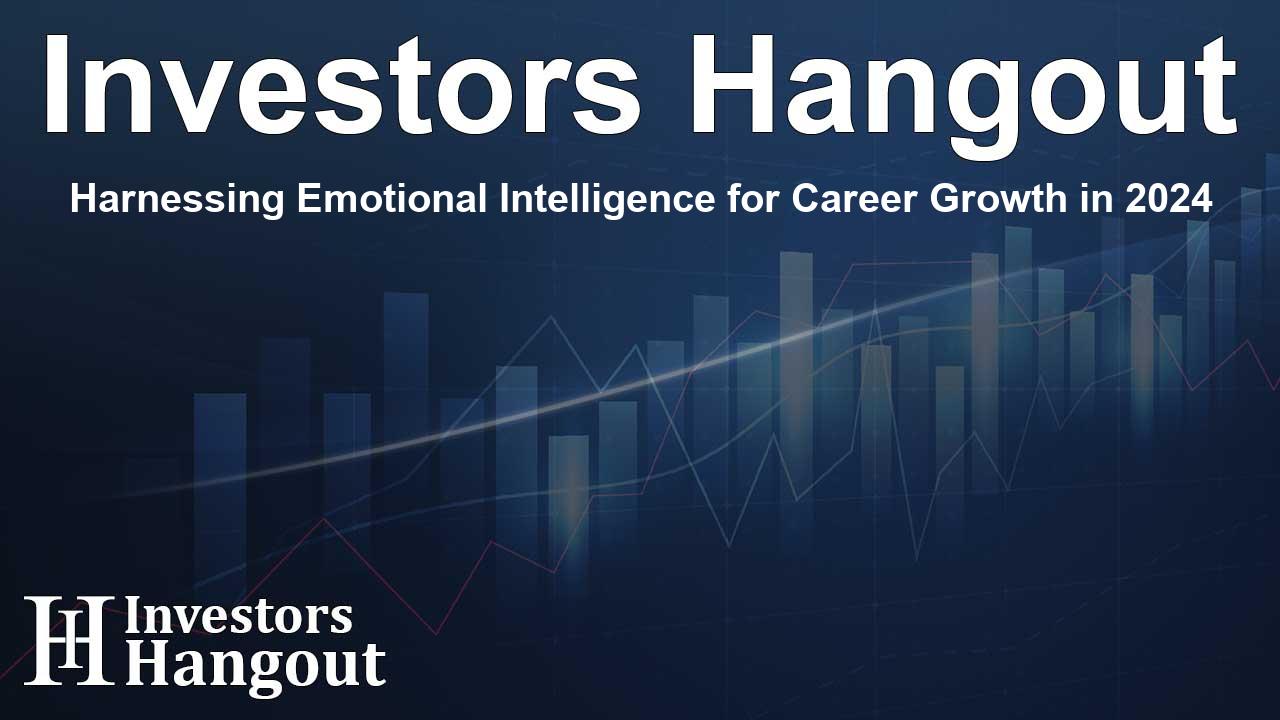Harnessing Emotional Intelligence for Career Growth in 2024

Emotional Intelligence: A Key Component for Career Success
In today's rapidly changing workplace landscape, emotional intelligence (EI) has emerged as an essential skill for career development. The ability to recognize and manage our emotions and those of others can greatly influence career choices and transitions. Mindy Bingham, co-author of the renowned Career Choices and Changes series, highlights the significance of social and emotional learning (SEL) in crafting fulfilling career paths.
The Importance of Self-Awareness in Career Journey
With career paths becoming increasingly non-linear, knowing oneself is more crucial than ever. Bingham, who also leads Academic Innovations, explains that emotional intelligence encompasses various elements such as self-awareness, empathy, and resilience, forming a strong foundation for navigating career shifts. Recognizing our strengths and values enables a better alignment of our professional lives with our true aspirations.
The Role of Emotional Intelligence in Decision-Making
Bingham acknowledges that many individuals face difficulties during their career decision-making process, often battling uncertainty and anxiety. Building social and emotional skills into this process equips individuals with the necessary tools to handle these emotions efficiently. Gaining a deeper awareness of one’s emotional responses promotes confident and resolute career decisions.
Fostering Resilience Through Emotional Intelligence
Integrating SEL into early career decision-making opportunities— whether in high school, college, or re-entry programs— fosters self-reflection and growth. Engaging in guided exercises and reflective practices allows individuals to explore their ambitions and obstacles. This deeper self-exploration leads to clearer goal setting and actionable steps toward achieving those goals.
Transforming Challenges into Opportunities
Bingham emphasizes the significance of resilience in overcoming obstacles. Developing an adaptive mindset helps individuals effectively cope with setbacks and perceive them as growth opportunities. This shift in thinking not only boosts career satisfaction but also nurtures a lifelong passion for personal development.
Conclusion: Investing in Emotional Intelligence for the Future
As the education sector continues to evolve, Bingham suggests incorporating the goal of emotional intelligence development into academic curricula and career counseling. This shift can fundamentally change how individuals approach their careers, fostering more rewarding and successful outcomes. Academic Innovations is dedicated to supporting educators and students through its pioneering resources, including the well-regarded Career Choices series.
To reach out for an interview regarding these insightful topics, individuals can contact the office of Gavin Rhoades. Academic Innovations stands as an award-winning educational publisher known for its innovative curriculum offerings that inspire students toward meaningful career pursuits.
Frequently Asked Questions
What is emotional intelligence?
Emotional intelligence refers to the ability to recognize, understand, and manage our own emotions while also being able to recognize and influence the emotions of others.
Why is emotional intelligence important for career success?
Emotional intelligence is crucial in making informed career choices, handling workplace challenges, and building effective relationships with colleagues and clients.
How can I develop my emotional intelligence?
Developing emotional intelligence can involve self-reflection, seeking feedback from others, practicing empathy, and learning to manage emotional responses effectively.
What role does resilience play in career development?
Resilience helps individuals cope with setbacks and view challenges as opportunities, allowing for continued growth and career satisfaction.
How can educators implement social and emotional learning in their curricula?
Educators can incorporate social and emotional learning by using guided exercises, reflective practices, and discussions that promote self-awareness and emotional regulation.
About Investors Hangout
Investors Hangout is a leading online stock forum for financial discussion and learning, offering a wide range of free tools and resources. It draws in traders of all levels, who exchange market knowledge, investigate trading tactics, and keep an eye on industry developments in real time. Featuring financial articles, stock message boards, quotes, charts, company profiles, and live news updates. Through cooperative learning and a wealth of informational resources, it helps users from novices creating their first portfolios to experts honing their techniques. Join Investors Hangout today: https://investorshangout.com/
Disclaimer: The content of this article is solely for general informational purposes only; it does not represent legal, financial, or investment advice. Investors Hangout does not offer financial advice; the author is not a licensed financial advisor. Consult a qualified advisor before making any financial or investment decisions based on this article. The author's interpretation of publicly available data shapes the opinions presented here; as a result, they should not be taken as advice to purchase, sell, or hold any securities mentioned or any other investments. The author does not guarantee the accuracy, completeness, or timeliness of any material, providing it "as is." Information and market conditions may change; past performance is not indicative of future outcomes. If any of the material offered here is inaccurate, please contact us for corrections.